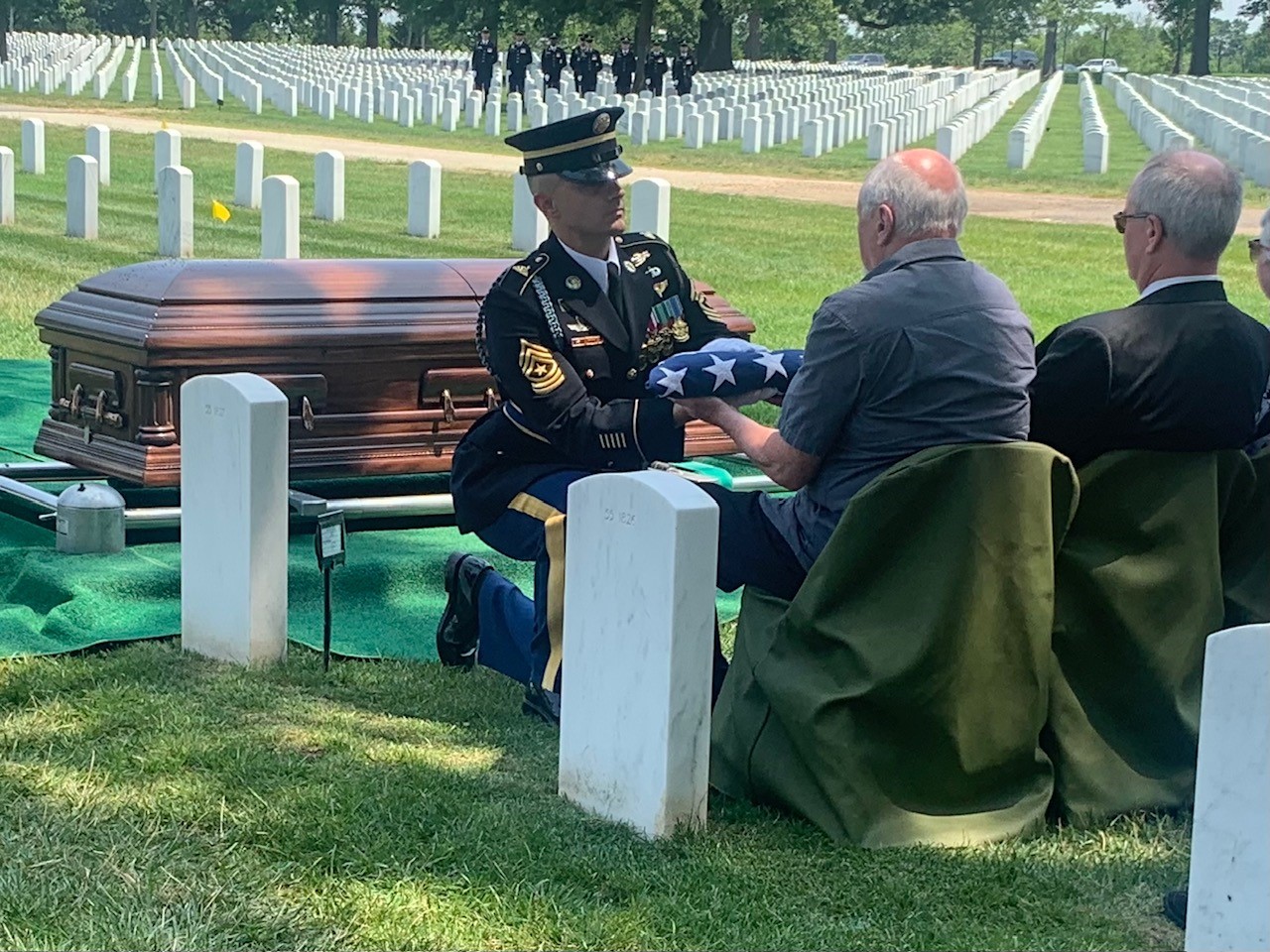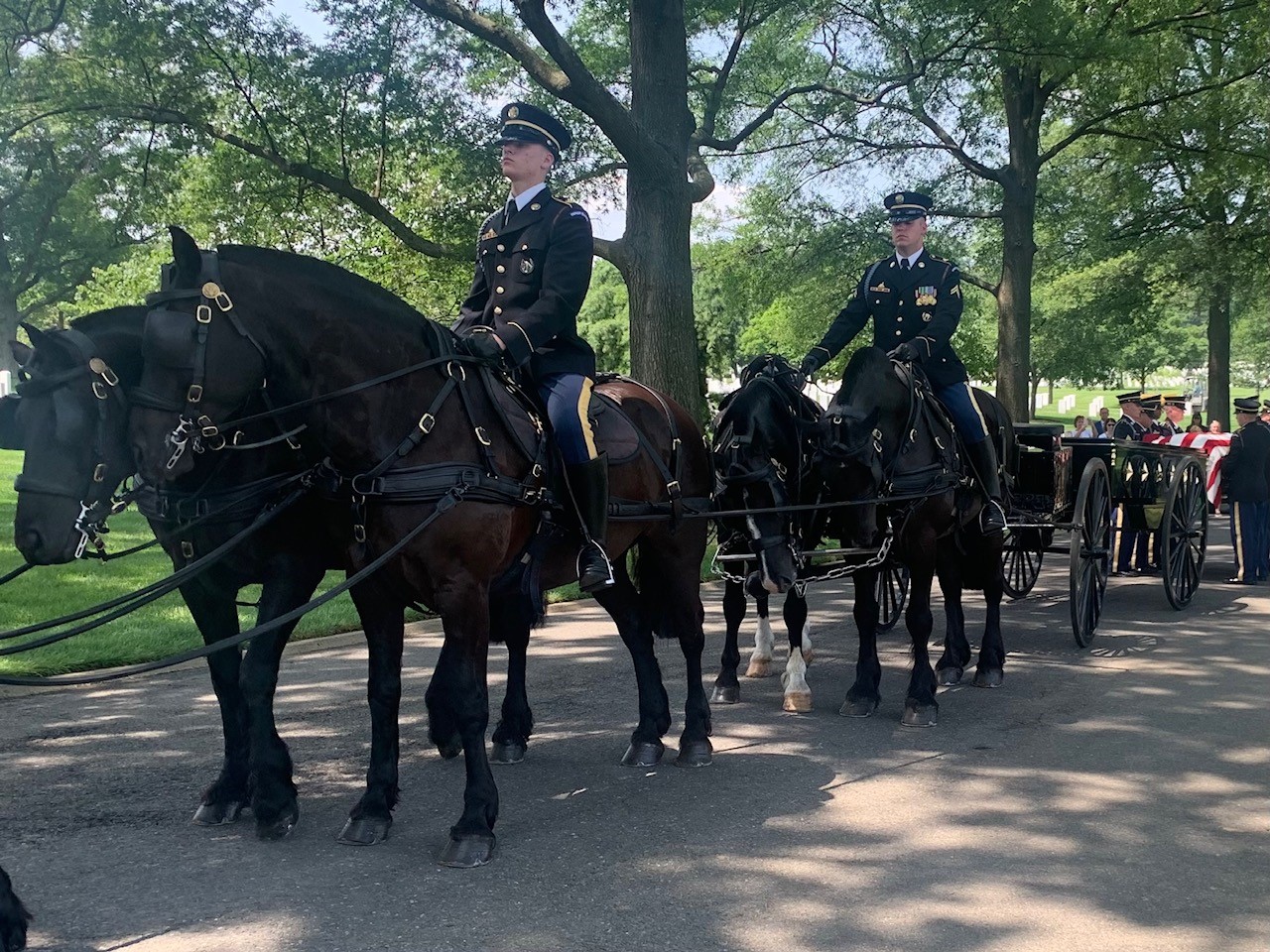
When Jeremiah “Jerry” Mannell learned that his uncle and namesake, Jeremiah “Jerry” Mahoney, had been identified after being missing in action for more than 80 years, he felt both relieved and saddened: relieved that his uncle had been identified, but saddened that his uncle’s immediate family had passed away without knowing what happened to him. “None of my siblings knew anything about him,” Mannell said. “We only knew he was lost in World War II.”
U.S. Army Pvt. Jeremiah P. Mahoney was killed on Jan. 17, 1945, while fighting to liberate the French town of Reipertswiller during the “Operation NORWIND” German offensive. He had been serving with an anti-tank company in the 157th Infantry Regiment, 45th Infantry Division. Due to the intensity of the fighting, his comrades were unable to retrieve his body from the battlefield.
Not long after the battle, according to Mannell, an Army car arrived at the Mahoney home on the south side of Chicago, and a soldier came to the door with a missing in action notice. Since Mahoney’s mother was at work, his younger brother Joe had to accept the notice. “Joe, who was probably ten or eleven at the time, had to wait until she came home to deliver the news that he was MIA,” Mannell recalled.
Mahoney’s mother had lost not only her son but her husband and brother as well within just six months. Her husband died of a heart attack and her brother was killed while serving in the Army. But Mannell knew that the death of her son especially devastated her. “I know she felt the loss her entire life.”
In August 2022, a set of unidentifiable remains that had been found in the Reipertswiller Forest and buried at the U.S. Military Cemetery in Neuville, Neupré, Belgium (today’s Ardennes American Cemetery) were exhumed and transferred to a Department of Defense POW/MIA Agency (DPAA) laboratory for analysis. On May 6, 2024, these remains were positively identified as Mahoney’s.
Mannell considered burying his uncle next to his mother in Chicago, but he decided on Arlington National Cemetery. “I just thought it would be a better legacy for the family to know that Jeremiah Mahoney was buried at Arlington National Cemetery with full honors,” he said.
On June 11, 2025, family and friends came to the cemetery to say goodbye to the uncle they never knew. Many of Mannell’s cousins brought their children, which he saw as handing down a legacy to a new generation.
A horse-drawn caisson brought Mahoney’s casket to Section 55, where U.S. Army Chaplain (Capt.) Raymond Akeriwe presided over the service and sprinkled holy water on the casket. Once the honor guard folded the American flag, Sgt. Maj. Sean Sweeney presented it to Mannell. “It was an honor,” Mannell said, “I was very humbled.”
After the service, Mannell gave the burial flag to two representatives from St. Ignatius College Prep in Chicago, his uncle’s alma mater, to be included in a display on Mahoney’s service. “It will be a legacy for their students,” he said.
The funeral service impressed Mannell. “It gave everybody a sense of pride in this country and the work that the soldiers do,” he said. He also appreciated the Army’s efforts, from searching for his uncle in 1946 to honoring him at his funeral service today. “He had the Bronze Star, the Purple Heart and several commendations,” Mannell concluded, “To know he served so well and that he deserved those honors, we are all very grateful.”
